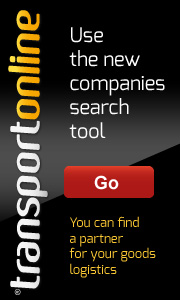Search Company:

Efficiency measures are estimated to account for over half of CO₂ emission reductions by 2050; alternative fuels implementation the other half. How does this work in practice? We asked IRU member Trailer Dynamics.
The trucking industry has a huge diversity of vehicles designed to transport a wide variety of goods over short, medium and long distances, from dense urban regions to remote rural areas. Many solutions are required to cut CO₂ emissions across the sector.
The IRU Green Compact’s “duplex approach” to decarbonising road transport leverages both efficiency measures and alternative fuels.
Efficiency measures build on the sector’s current best practices, using already available and proven technologies and solutions that avoid disrupting essential transport services.
We asked Michael W. Nimtsch, Co-founder and Managing Director of Trailer Dynamics, to help us explore some of the available efficiency measures.
What role do efficiency measures play in decarbonising road transport?
Improving the efficiency of electrified vehicles and e-trailers in road transport is key to decarbonising the sector.
By prioritising efficiency measures, the transport sector can accelerate the transition while significantly reducing energy consumption and carbon emissions.
There are many efficiency measures, some of the more notable examples include reducing the rolling resistance of tyres; increasing the efficiency of e-components and thermal management; using lighter materials such as aluminium, carbon fibre and advanced composites; optimising vehicle design; improving software; and enhancing the durability of e-components.
How can governments help?
We strive to achieve the complete decarbonisation of heavy goods transport. Consequently, we expect a comprehensive and strategic government approach at the national and global level. This process should involve all technologies, clearly defined steps and coordinated efforts among all stakeholders.
Reaching our goal will take time. It is crucial to establish long-term targets and milestone phases with increasing requirements to allow the sector to progressively adapt. Legislation should be appropriate for each phase, factoring in new developments and realities.
In our ever-evolving sector, constant dialogue between all stakeholders will ensure that efforts are aligned, phases are monitored and adjusted, resources are optimised, and challenges are addressed collectively. Technology advancements should be encouraged. It will be a central lever in the transition. Read more
Source: IRU




